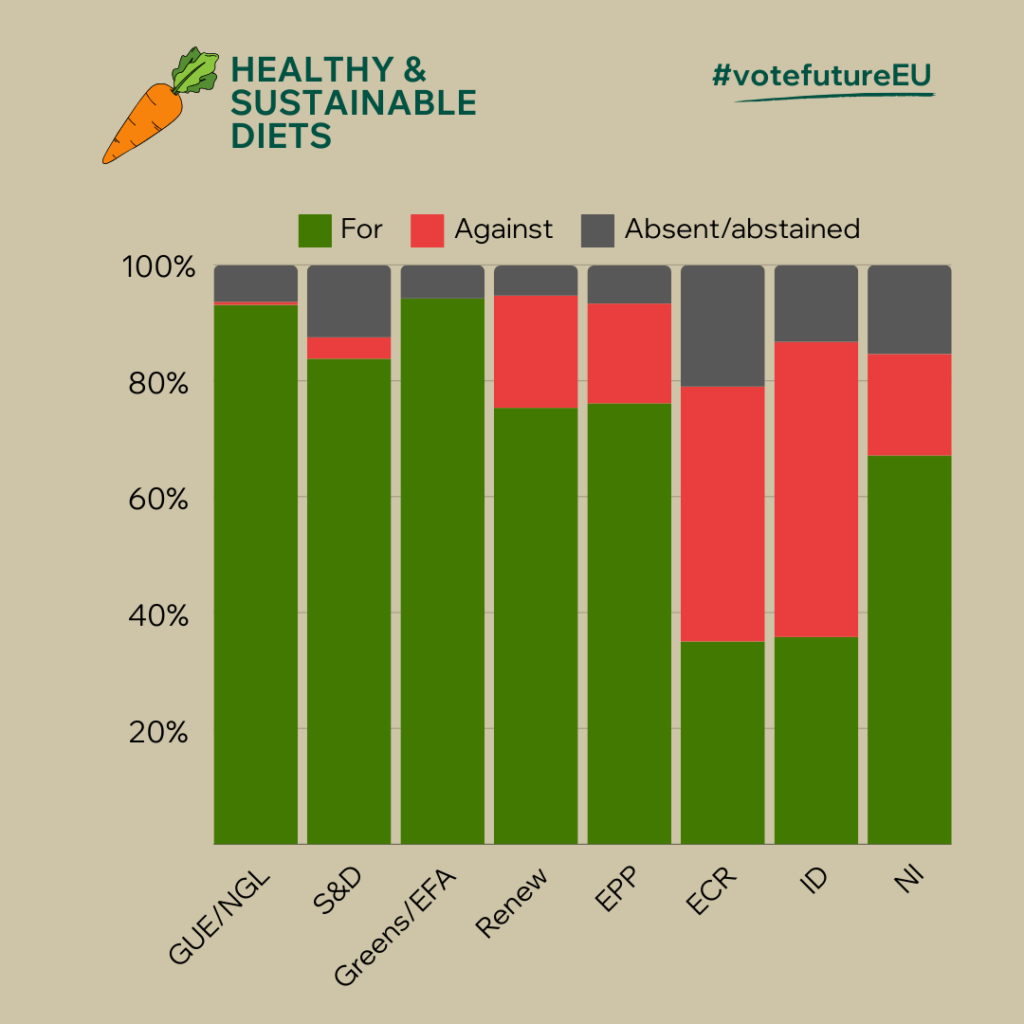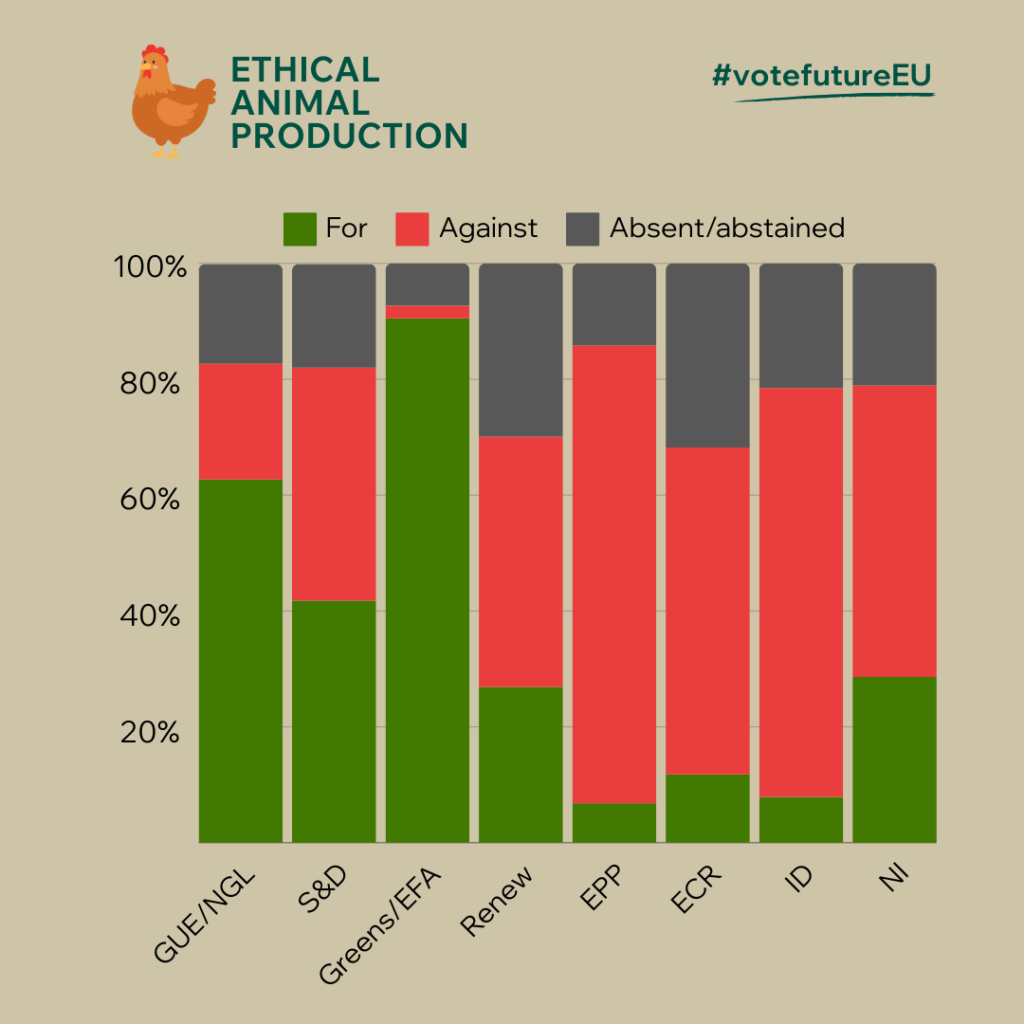With 30 days until the European Parliament elections, EU citizens are weighing up their options. To help voters make informed decisions at the ballot box, participating organisations of the EU Food Policy Coalition (EU FPC) joined forces to shed light on the voting records of Members of the European Parliament (MEPs) – and the political groups they belong to – over the last mandate (2019-2024).
Through a set of user-friendly scorecards, voters can gain insights into which MEPs have supported or rejected initiatives promoting health, biodiversity, justice, and equity in Europe’s food systems.
Polls clearly show that food and farming are rising on the list of EU citizens’ priorities. From justice for farmers and access to healthy food to agroecology, sustainable diets and animal welfare, people care about how our food is produced. They are also increasingly aware about how our socially, environmentally and economically unsustainable food systems are contributing to the climate crisis and the degradation of natural resources, all while fuelling social inequality (including in the farming community) and damaging Europeans’ health.
To help EU citizens make informed choices about who they are voting for in the upcoming elections, participating organisations of the EU FPC have done some digging on how our elected MEPs have been voting on issues related to our food and farming systems over the last five-year term.
The voting records of different EP Groups were compiled into a comprehensive overview by considering the results of multiple votes (publicly accessible at MEP Watch), which were divided into five categories.
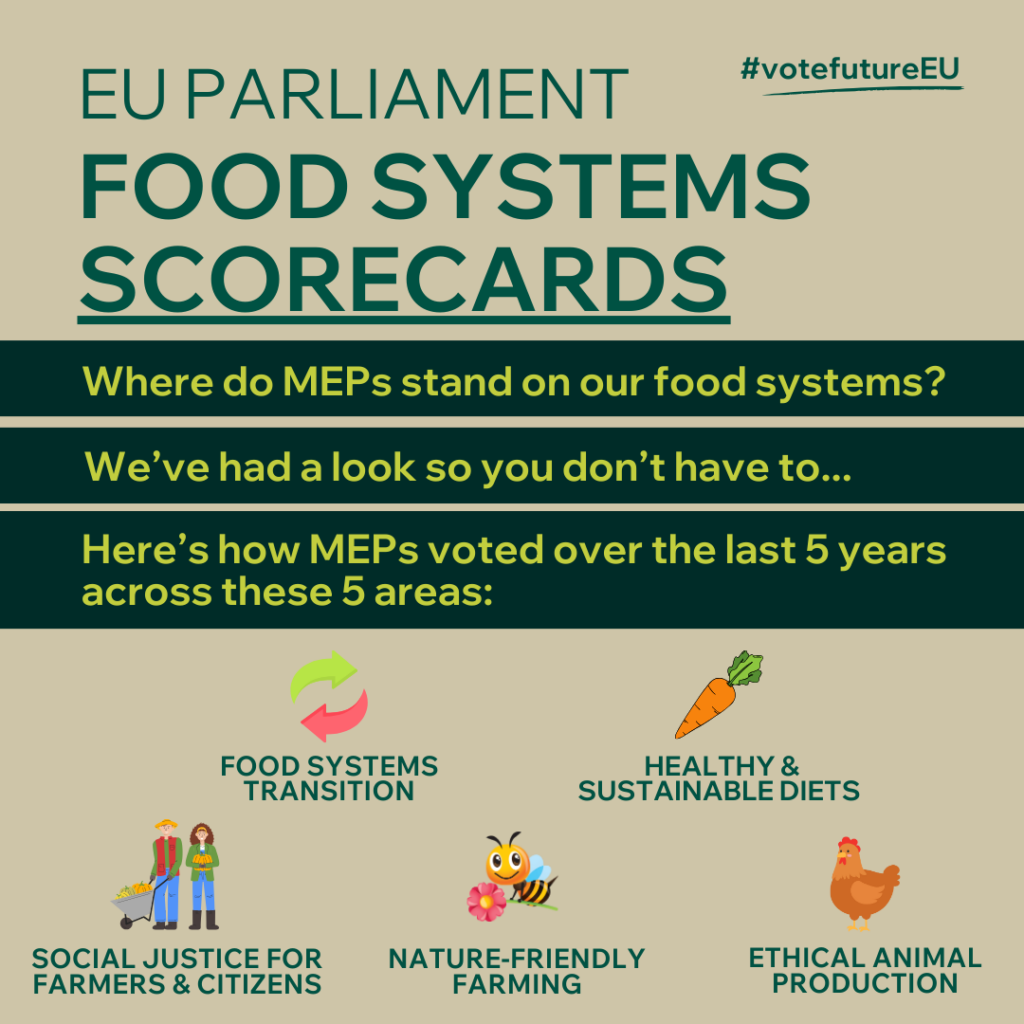
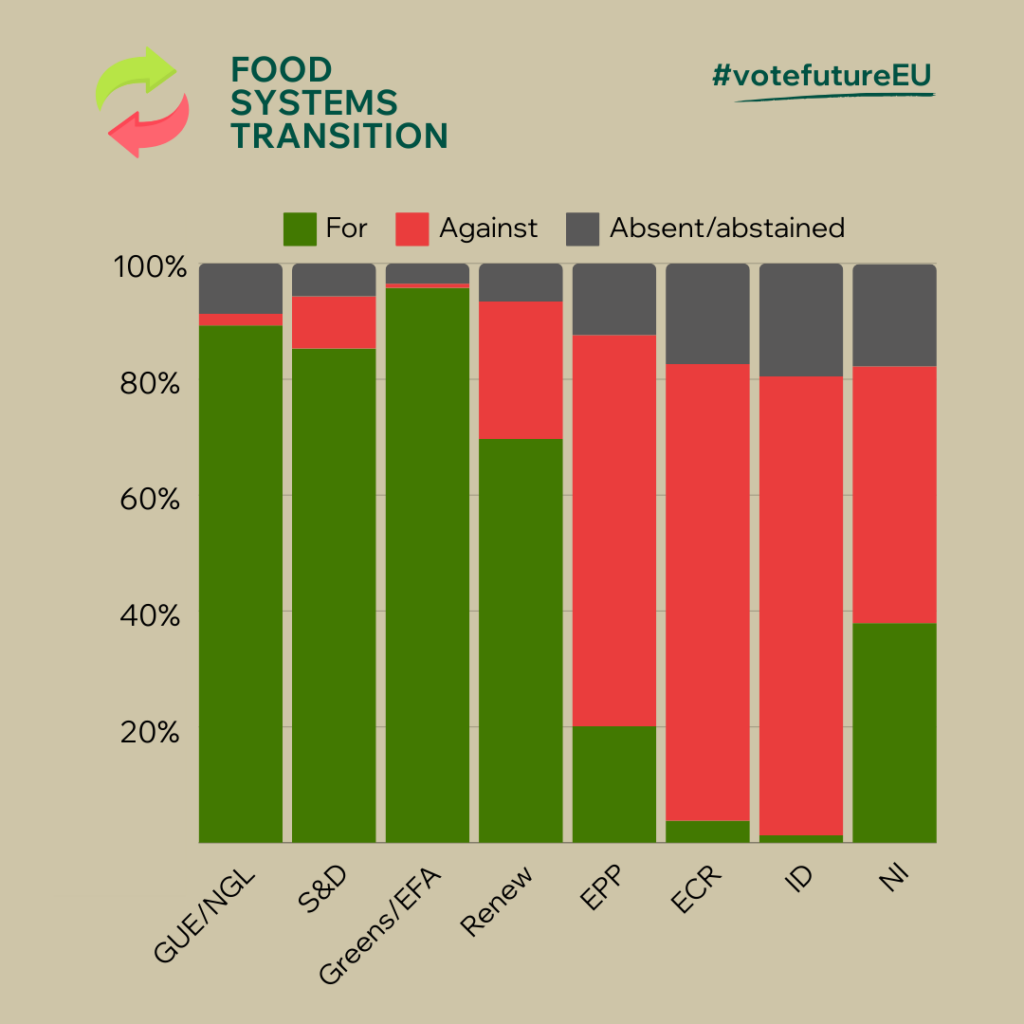
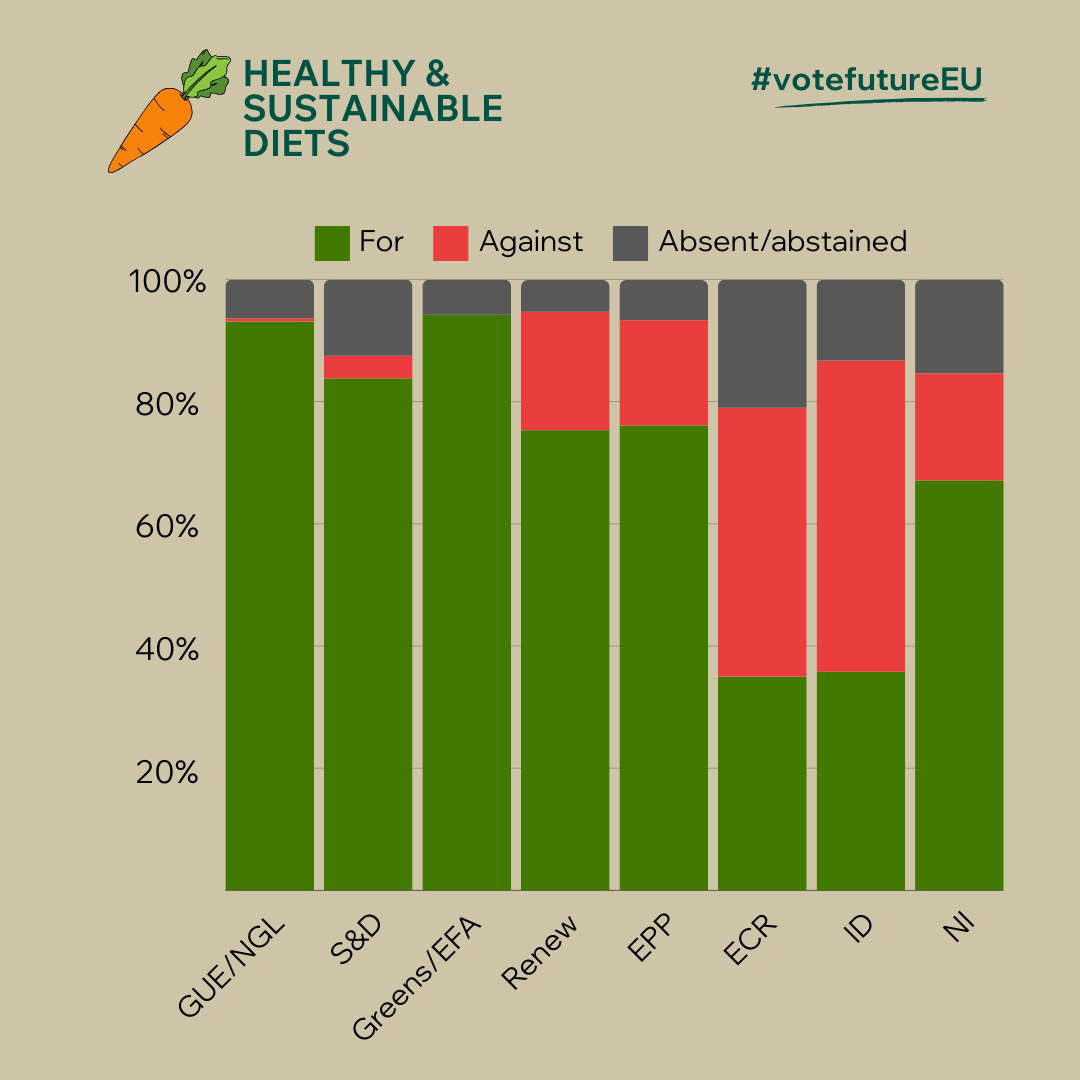

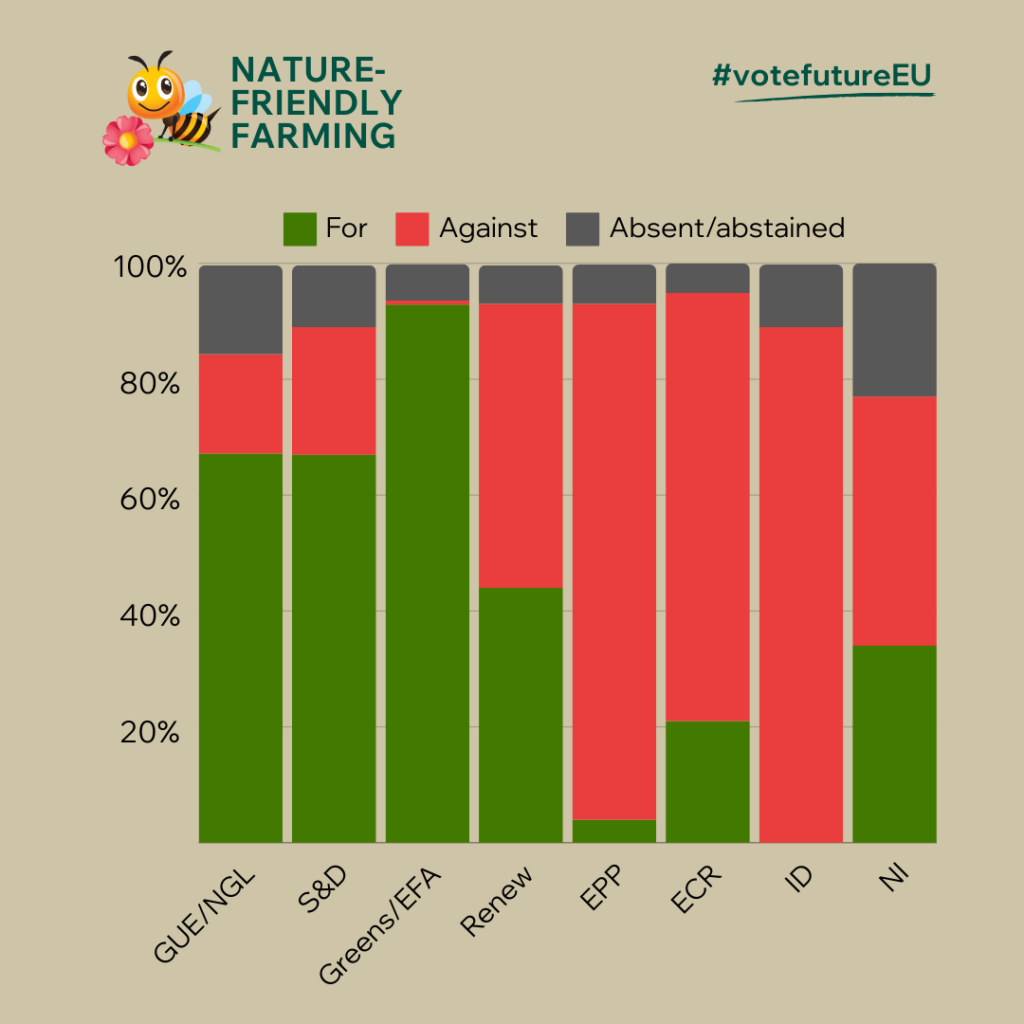
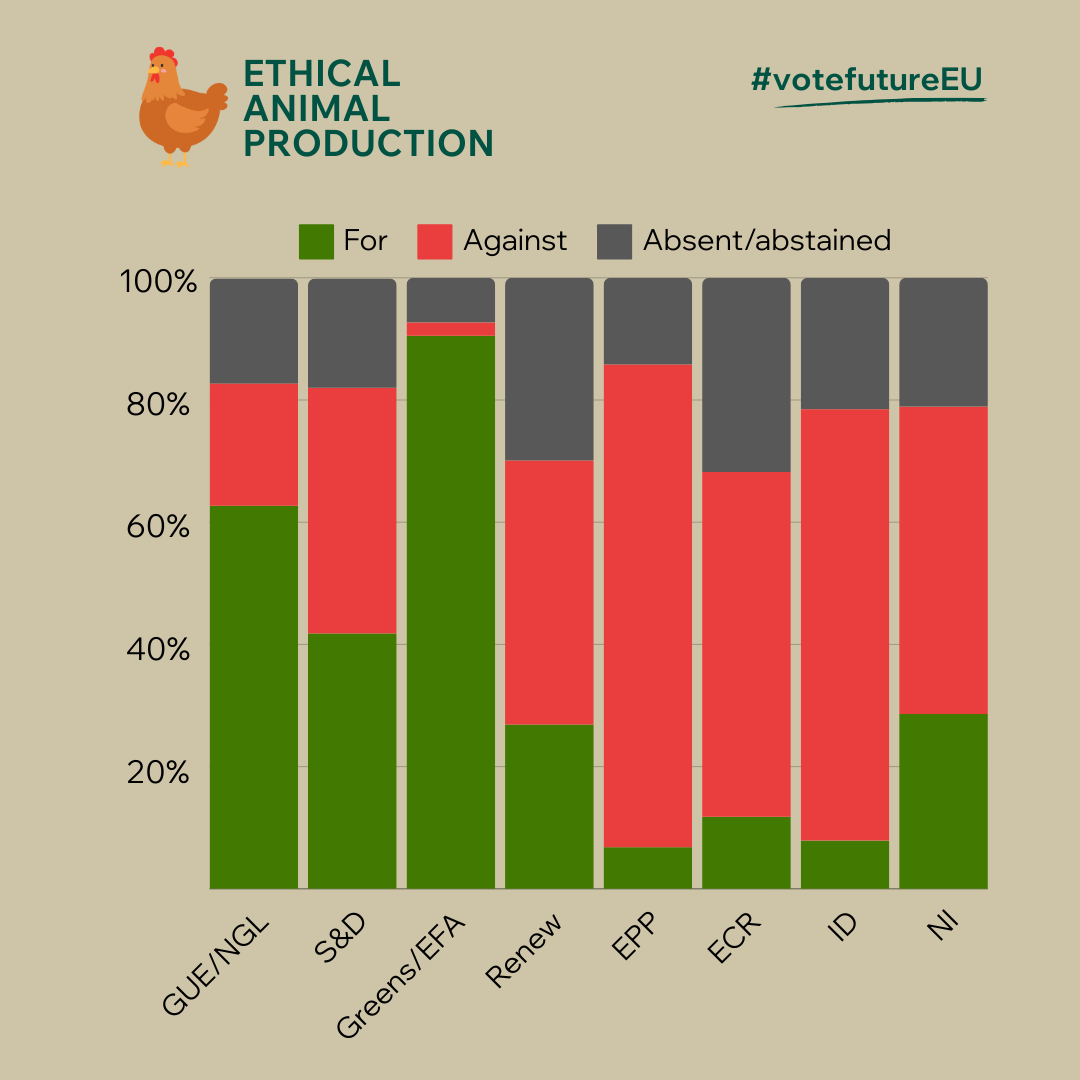
Here are some key takeaways for each category:
Recognising and supporting the need for a transition
Over 95% of the Greens-European Free Alliance (Greens/EFA) recognised and supported the need for a transition (in line with the Group’s 2019 manifesto), whilst only 20% of the members of the European People’s Party (EPP) and under 4% of the European Conservatives and Reformists (ECR) did. Notably, 85% of the Socialists and Democrats (S&D) group also voted in accordance with the need for a transition.
Access to healthy and sustainable diets
Access to healthy & sustainable diets across Europe was overwhelmingly supported by more than three quarters of all political groups in the Parliament, except ECR, ID and NI.
Social justice for farmers and citizens
Social justice for farmers and citizens came across as a clear priority for the Greens/EFA group, with an average 93% voting rate in favour of policies that support it. ECR seemed to have different priorities, with less than 25% of its votes supporting policies such as the realisation of the right to food. It’s worth highlighting the internal division among Renew MEPs, as contrary to expectations, 50% voted against this initiative.

Nature-friendly farming and shifting towards agroecology
With only 4 percent of its MEPs in favour, the EPP showed very little intention of supporting policies that promote nature- and climate-friendly farming. At the same time, a majority of MEPs from Renew, EPP, ECR, ID and NI favoured weakening binding rules for pesticide use in sensitive areas and proposals revoking key environmental conditionalities under the CAP, amongst other votes within this category.
Transitioning towards ethical animal production
The transition towards more sustainable animal farming was clearly low on the list of EPP, ECR, and ID priorities. Respectively, slightly less than 7%, 12% and 8% of their MEPs voted in favour of measures that would have supported the promotion of stock
recovery for European fisheries and the establishment of a plant-based protein plan.
A clear champion in the transition towards more ethical animal production was the Greens/EFA group, with an outstanding support of more than 90%
Downloads
- Press release
- Two-pager explanation of the methodology for data collection and analysis
- Download the scorecards as images


